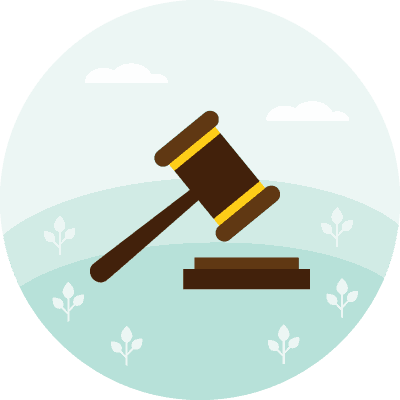What Is a Sole Proprietorship?
REtipster does not provide legal advice. The information in this article can be impacted by many unique variables. Always consult with a qualified legal professional before taking action.
How Does a Sole Proprietorship Work?
A sole proprietorship is the simplest form of business one can start, and it has notable differences from other business entities.
One of these differences is the absence of legal separation between the business and the individual who owns it. A sole proprietorship acts as a mere extension of its owner, making the individual legally responsible for all of the business’s debts and liabilities[1]. A sole proprietorship’s income and losses are also taxed on the owner’s personal income tax return.
The owner can choose to operate a sole proprietorship under their own name or do business under a fictitious name (known as “doing business as,” or DBA). However, even if the owner chooses to do so, that name is only considered the business’s trade name; it does not represent a discrete legal entity from its owner[2].
RELATED: How to Start Your Own Corporation or LLC (It’s easier Than You Think!)
An individual does not need to register a sole proprietorship as long as the individual uses their own name—without any additions—to do business. Therefore, there is no required formal action for an individual to start a sole proprietorship. In fact, many sole proprietors are unaware that they have a sole proprietorship. For example, if an individual offers their talents as a freelance graphic designer, that individual is already the sole proprietor of a business, whether they are doing it full-time or as a side job.
That said, if the owner wants to operate a DBA or use their own name but with additions, they have to register their sole proprietorship[3].
A married couple can also start a sole proprietorship if they choose to file a qualified joint venture[4].
Pros and Cons of Sole Proprietorship
Pros
A sole proprietorship presents its owner with several advantages, but like other business entities, it also has a few drawbacks. Here are some of its benefits.
- Easy and inexpensive. In many cases, a sole proprietorship is formed with nothing but the owner’s talents and time. It also requires less paperwork, which makes it easy for anyone engaging in the gig economy.
- Complete control. With a sole proprietorship, the owner is their own boss, which means their decisions are the only ones that count. They get to enjoy the business’s profits on their own.
- Easier to tax. A sole proprietorship is not taxed separately. It is easier to file taxes for a sole proprietorship as it is not a separate taxable entity from the owner.
Cons
Though a sole proprietorship has advantages for those who would like to start a business with limited capital, it also presents some disadvantages, such as the following:
- Unlimited personal liability. Of all the disadvantages of a sole proprietorship, this one is the biggest[6]. Since there is no separation between the sole proprietor and the business, the sole proprietor is responsible for all the debts and liabilities incurred by the business. Even if the liability is incurred as a result of the actions of an employee, the owner is still responsible for the liability, and all the personal assets of the owner may be liable for damages.
- Raising capital is difficult. Unlike some corporate entities, which can distribute the burden of capitalization by selling shares (essentially a stake in the business), owners of sole proprietorships often turn to their personal assets to finance their business or as collateral for loans[7]. These assets may be lost when the business fails to become profitable.
- Selling the business is a hassle. Since a sole proprietorship is effectively attached to its owner’s name, it will also cease to exist once the owner stops business operations or if the owner dies. A sole proprietor who wishes to stop operating their business can sell its assets instead of selling the business itself. However, if the business operates under a DBA, it is possible to sell its usage rights or pass them to an inheritor[8].
When to Consider a Sole Proprietorship
An individual with little or no experience owning and operating a business may consider starting a sole proprietorship because it is straightforward and does not require any legal filing.
If an individual is entirely self-financed, such as one fully dependent on their savings to start their own business, a sole proprietorship is also a good option. If the owner does not have savings or they have insufficient savings, they can take out a personal loan to put up the cash they need, which takes less time to approve and process than a small business loan[9].
When Is a Sole Proprietorship Inadvisable?
There are also circumstances when it is better to form an entirely new business entity, especially when liability is an issue for the owner—such as when the owner hires employees under a sole proprietorship entity. One common example is when an employee causes an accident—the business entity will be accountable for covering the legal and financial burden brought about by the event. If a separate business entity, such as a limited liability company (LLC) or a corporation, has been formed to manage the business, the liability can stop with the LLC or corporation. However, if a sole proprietor is liable, that liability will follow through to the individual owner and their personal assets.
Alongside this risk, the sole proprietor is also responsible for the safety and well-being of their employees and their benefits in the normal fulfillment of their jobs.
Takeaways
A sole proprietorship is an unincorporated business owned solely by one individual (or, in some cases, a married couple). It is the simplest business entity allowed under U.S. law and the most common, as it needs no paperwork or other legal formalities. There is some registration involved for registering the business under another name, however, in which case it will be called a “doing business as” or DBA.
The biggest drawback to a sole proprietorship is its unlimited personal liability for the owner, which means the owner can be sued for what their business (and/or their employees) have done. In addition to its risks, the owner must set long-term expectations for their business, as a sole proprietorship is only advantageous for short-term, small-scale projects.
Sources
- Ward, S. (2020.) What Is a Sole Proprietorship? The Balance. Retrieved from https://www.thebalancesmb.com/sole-proprietorship-2947269
- Entrepreneur. (n.d.) Sole Proprietorship. Retrieved from https://www.entrepreneur.com/encyclopedia/sole-proprietorship
- U.S. Small Business Administration. (n.d.) Sole Proprietorship. Retrieved from https://www.sba.gov/business-guide/launch-your-business/choose-business-structure
- Internal Revenue Service. (n.d.) “Question: Can a married couple operate a business as a sole proprietorship or do they need to be a partnership?” Retrieved from https://www.irs.gov/faqs/small-business-self-employed-other-business/entities/entities
- Hodge, S. (2014.) The U.S. Has More Individually Owned Businesses than Corporations. The Tax Foundation. Retrieved from https://taxfoundation.org/us-has-more-individually-owned-businesses-corporations/
- Piper, M. (n.d.) Sole Proprietorship: Unlimited Liability. The Oblivious Investor. Retrieved from https://obliviousinvestor.com/sole-proprietorship-unlimited-liability/
- Mighty Recruiter. (n.d.) The Disadvantages and Risks of a Sole Proprietorship. Retrieved from https://www.mightyrecruiter.com/recruiter-guide/the-disadvantages-and-risks-of-a-sole-proprietorship/
- Wood, M. (2020.) The Advantages and Disadvantages of Sole Proprietorship. NerdWallet. Retrieved from https://www.nerdwallet.com/article/small-business/advantages-of-a-sole-proprietorship.
- Aldrich, E. (2021.) Small Business Loan vs. Personal Loan: Which Is Right for Me? The Motley Fool. Retrieved from https://www.fool.com/the-ascent/personal-loans/small-business-loan-vs-personal-loan/










